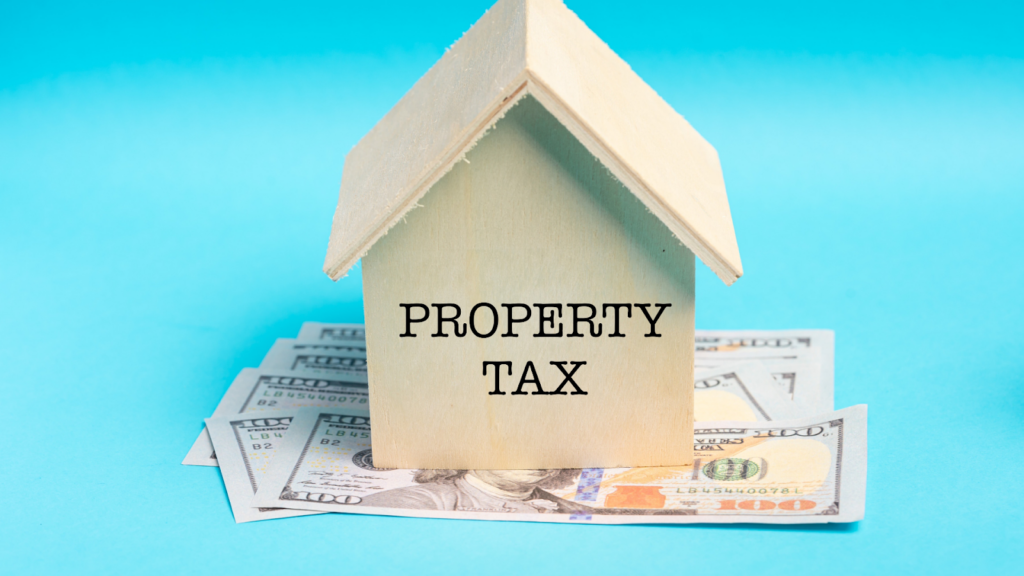Delinquent Taxes: What Happens If You Don’t Pay On Time?
March 21, 2025
Definition: Delinquent taxes refer to unpaid property taxes that remain past the due date. In Texas, taxes become delinquent on February 1st, triggering penalties and interest that continue to grow. If left unpaid, homeowners may face tax liens or foreclosure.
Science Behind It: An initial 7% penalty applies in the first month, followed by 1% interest per month. By July, a 20% collection fee may be added. These penalties are designed to encourage timely payments and fund essential public services.
Examples in Action:
- Lisa, a Dallas homeowner, missed her property tax deadline. By March, her bill had increased due to penalties. By July, a tax lien was placed on her property, making it challenging to refinance. To regain control, Lisa explored payment plans and exemptions to reduce her tax burden.
Fun Fact: Texas provides generous tax exemptions, including a $100,000 homestead exemption for 2025, lowering homeowners’ taxable value. Seniors over 65 and veterans, especially those disabled, may qualify for additional exemptions up to $110,000 or full exemptions, plus deferrals that delay homestead tax payments, easing long-term financial pressure.
Key Takeaways:
- What Happens When Taxes Become Delinquent: Texas property taxes are due by January 31st. If unpaid by February 1st, they become delinquent, triggering penalties, interest, and collection fees that increase over time.
- Consequences Of Delinquent Taxes: Unpaid taxes can lead to tax liens, making it difficult to sell or refinance a home. Prolonged delinquency may result in foreclosure, risking property loss.
- How To Resolve Delinquent Taxes: Homeowners can explore payment plans, exemptions, tax loans, or property tax protests. Icon Property Tax Appeal offers expert guidance to reduce tax burdens and prevent financial strain before penalties escalate.
When Does A Tax Bill Become Delinquent?
Missing property tax deadlines leads to penalties, interest, and legal consequences. In Texas, unpaid taxes become delinquent on February 1st, triggering escalating fees. Here’s what happens when taxes remain unpaid:
February: Initial Penalties And Interest Begin
In February, a 7% penalty is applied, with 1% monthly interest on the unpaid balance. The penalty grows each month, making repayment harder. Addressing delinquency early helps avoid accumulating costs.
July: Higher Penalties And Attorney Fees
By July 1st, penalties for delinquent property taxes will reach 12%. Tax authorities may hire attorneys and add a 20% collection fee, significantly increasing the cost of unpaid tax debt.
Seeking Solutions Before It’s Too Late
Delinquent taxes can be resolved with Icon Property Tax Appeal, which helps homeowners lower tax burdens, protest assessments, and explore exemptions. Taking action early prevents financial strain and protects property ownership.
The Consequences Of Ignoring Delinquent Taxes
Ignoring delinquent property taxes leads to financial and legal troubles. From tax liens to foreclosure, the risks grow over time. Homeowners must act quickly to avoid penalties, property loss, and financial instability:
Tax Liens Can Impact Credit and Property Sales
Unpaid taxes result in tax liens, damaging credit, and blocking refinancing or property sales. Homeowners must settle the debt before regaining control. Liens make selling difficult, often leading to unexpected financial hurdles when seeking loans or other financing options.
Tax Foreclosure Can Lead to Property Loss
Long-term delinquency can trigger tax foreclosure, allowing authorities to seize and sell a property. Homeowners receive multiple warnings, but ignoring them may lead to eviction, permanent property loss, and financial hardship, making recovery difficult.
Difficulty Accessing Financial Relief
Delinquent taxes reduce access to loans, refinancing, and payment plans since lenders avoid high-risk applicants. Missing tax exemptions worsens the burden, leaving fewer options to reduce debt and restore financial stability.
Rising Debt from Penalties and Fees
Late payments accumulate penalties, interest, and legal fees, increasing overall debt. By July, attorney fees may be added, making repayment more difficult. The longer taxes go unpaid, the harder they become to resolve affordably.
Options For Resolving Delinquent Property Taxes
Homeowners facing delinquent taxes have options to avoid penalties and legal trouble. Payment plans, exemptions, tax loans, and protests can help reduce financial strain and protect property ownership:
Payment Plans Can Ease Immediate Financial Strain
Texas counties offer payment plans to break tax bills into smaller payments. While they prevent immediate legal action, interest and penalties still accrue, making early resolution crucial to avoid excessive costs and long-term financial strain.
Exemptions And Deferrals Can Lower Future Tax Burdens
Property tax exemptions reduce taxable value, lowering future payments. Seniors, disabled individuals, and veterans may qualify for deferrals, delaying tax obligations until the property is sold, helping avoid immediate financial hardship while protecting homeownership.
Tax Loan Options For Immediate Relief
Property tax loans cover delinquent taxes before severe penalties and foreclosure risks increase. These loans settle the debt upfront, allowing repayment over time under different terms, though they introduce a new financial responsibility that must be carefully considered.
Protesting An Overassessed Property Value
An inaccurate property assessment leads to overpayment. Challenging an inflated valuation through a tax protest can reduce tax liability. Icon Property Tax Appeal helps homeowners build a strong case and maximize tax savings.
Seeking Professional Guidance For Best Results
Choosing the right solution depends on financial circumstances. Consulting trusted local tax agents ensures homeowners explore the best strategies to resolve delinquent taxes efficiently while preventing unnecessary overpayments.

How To Avoid Becoming Delinquent On Property Taxes
Avoiding property tax delinquency requires awareness, planning, and taking advantage of available relief options. By staying proactive, homeowners can prevent penalties, liens, and foreclosure, keeping their finances stable and their property secure:
Understand Your Property Assessment
Overassessed properties lead to higher taxes, but homeowners can file a protest or request a reassessment to ensure fairness. Reviewing assessments regularly helps prevent unnecessary overpayments and financial strain caused by inflated property values.
Stay Informed About Deadlines
Texas property taxes are typically due January 31st, and missing this deadline triggers penalties and interest. Marking key dates and planning payments in advance helps homeowners stay compliant and avoid financial stress.
Explore Available Exemptions
Exemptions like homestead, senior, disability, and veteran benefits lower taxable value and reduce tax bills. Applying for these exemptions helps homeowners save money, prevent delinquency, and ease financial burdens.
Consider A Payment Plan If Needed
If full payment isn’t possible, a payment plan allows homeowners to spread payments over time, reducing immediate financial strain while preventing excessive penalties and collection actions.
Engage Professional Support
Expert guidance helps homeowners lower tax burdens and dispute unfair assessments. Icon Property Tax Appeal offers professional assistance with zero upfront cost, ensuring homeowners pay only what’s fair.
Assistance Programs For Delinquent Taxpayers
Delinquent property taxes can be stressful, but assistance programs offer relief. Homeowners can explore structured payment plans, exemptions, and tax loans to reduce financial strain and avoid severe consequences like tax liens or foreclosure:
Payment Plans Can Ease Immediate Financial Strain
Many Texas counties offer payment plans that break tax bills into manageable installments. These plans help prevent foreclosure and reduce stress, but penalties and interest may still apply. Enrolling early minimizes costs and keeps property owners from facing escalating legal or financial consequences.
Exemptions and Deferrals Can Lower Future Tax Burdens
Property tax exemptions reduce taxable amounts, lowering bills for homeowners. Homestead, senior, and veteran exemptions provide savings, while tax deferrals allow eligible seniors and disabled individuals to postpone payments, preventing immediate penalties and offering financial relief without the risk of foreclosure.
Tax Loan Options and IRS Fresh Start Program
Property tax loans help homeowners pay off delinquent taxes, preventing foreclosure while offering structured repayment. The IRS Fresh Start Program assists with tax debt restructuring, allowing flexible repayment plans that ease financial pressure and help property owners regain control over their tax obligations.
Get Expert Help Before It’s Too Late
Managing delinquent taxes alone can be challenging. Icon Property Tax Appeal offers expert guidance on protests, exemptions, and repayment options, ensuring homeowners take the proper steps to protect their property and avoid costly penalties or legal action.

Frequently Asked Questions About Delinquent Taxes
Can Interest and Penalties Be Added to Delinquent Taxes?
Yes, once property taxes become delinquent, penalties begin accruing immediately. A 7% penalty applies in February, rises to 9% in April, and increases by 1% each month until July, reaching 12%. If sent to collections after July 1, a 20% attorney fee is added.
Is There a Grace Period for Late Tax Payments?
Texas does not offer a formal extended grace period for delinquent property taxes. Payments are due by January 31st, and taxes become delinquent on February 1st. Once delinquent, penalties begin accumulating immediately, making it essential to pay on time or arrange a resolution quickly.
How Does the IRS Notify Individuals of Delinquent Taxes?
The IRS and local tax authorities send official notices about delinquent taxes, including warning letters, tax lien notifications, and final foreclosure notices. These letters serve as legal warnings and indicate escalating enforcement actions that could lead to serious financial or legal consequences if left unresolved.
What Are Tax Liens, and How Do They Relate to Delinquent Taxes?
A tax lien is a legal claim placed on a property due to unpaid property taxes. It restricts the homeowner’s ability to sell or refinance. A tax lien negatively impacts credit scores and can remain on financial records until the debt is fully paid, potentially leading to foreclosure.
What Is an Offer in Compromise, and How Can It Help With Delinquent Taxes?
An Offer in Compromise allows qualifying taxpayers to settle their tax debt for less than the total owed, typically based on financial hardship. This program is beneficial for homeowners struggling to pay their full tax balance and looking for a negotiated resolution to reduce their burden.
What Is the Fresh Start Program?
The Fresh Start Program is an IRS initiative providing taxpayers with flexible repayment terms to avoid aggressive collection actions. While it primarily applies to federal tax debt, homeowners struggling with property taxes can explore similar relief programs available at the county or state level.
How Does Tax Delinquency Impact Business Owners?
Business owners with delinquent property taxes risk tax liens, asset seizures, and damaged business credit. A tax lien can prevent obtaining business loans, while continued delinquency can lead to severe penalties that disrupt operations or force the sale of business assets.
Can Delinquent Taxes Lead to Jail Time?
While failing to pay property taxes does not typically result in jail time, deliberate tax evasion or fraud can lead to legal consequences. Ignoring tax obligations can escalate into severe penalties, making it crucial to address delinquent taxes before enforcement actions intensify.

